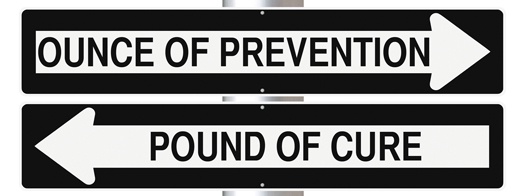
The healthcare model in Western medicine centers around accurate diagnosis and effective cure. Over the last hundred years, innovations in pharmaceuticals, surgical techniques, and medical technology have positioned modern medicine at the forefront of Western scientific discovery. However, this legacy model of diagnosis and cure separates Western medical practitioners from the thousand-year-old traditions of their Eastern colleagues.
The Eastern medical model starts with health, not disease. Eastern medical practitioners view health as the natural state and seek to guide patients along a path of natural health. They do not consider it their job to identify naturally occurring diseases and invent cures as a response.
Rather, their medical practice is designed to prevent disease.
The field of social work has recently discovered the alchemy of the Eastern medical model. Dr. J. David Hawkins, PhD, an endowed professor of prevention at the University of Washington School of Social Work talked about this paradigm shift in the field of social work.
“What’s really exciting in the area of youth development is the progress that’s been made in our ability to actually prevent behavioral health problems. We’ve learned that there are common risk and protective factors that can predict ‘behavioral health problems’. And we’ve also learned that you can change those things and actually prevent behavioral health problems from developing.”
New Trends in Social Work?
Social workers around the country are beginning to rethink the social work model they have been trained under. Behavioral health problems are imbedded in human nature, and we’re here to help the unfortunate survive in an unhealthy social environment. Rather, they are beginning to “unleash the power of prevention” in their practice.
Dr. Jordan DeVylder, PhD, a professor at the University of Maryland School of Social Work explains how the profession is “unleashing the power of prevention”.
“It even seems possible to actually prevent the initial onset of certain disorders, based on the evidence we have so far. Psychotherapy, maintaining family supports, maintaining social supports, staying in school, staying in work, maintaining housing, and harm reduction due to substance use are a lot of the things that are working for this group.”
Prevention can begin as early as gestation.
“Prevention can start during the second trimester of pregnancy,” Hawkins says. “There are programs like Nurse-Family Partnership that start when a pregnant teenage girl who doesn’t have a partner or other supports is visited at home by a nurse.”
Think of how that baby’s health will be improved if the nurse can encourage the mother to live a clean and sober pregnancy, look after her own nutritional needs, and prevent other prenatal medical conditions that often develop in the babies of teenager mothers who find themselves alone and undereducated.
Social Work is beginning to evolve toward the Eastern medical model.
No longer willing to simply accept behavioral health issues as normal, social workers are looking for opportunities to prevent behavioral health problems before they become the norm. This is a paradigm shift in Western heath care and Social Work thinking that is beginning to take hold across the entire profession, starting in the universities and spreading into the field.
If we have the patience to see what measures are working and the courage to adopt new ideas, this Ancient Eastern view of health care will serve Social Services well over the next thousand years.

